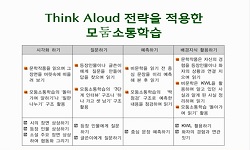This study aims to survey the early media education that reflected media-related contents in the korean language curriculum and textbooks and to explain the meaning of early media education in the history of korean language education. First of all, th...
http://chineseinput.net/에서 pinyin(병음)방식으로 중국어를 변환할 수 있습니다.
변환된 중국어를 복사하여 사용하시면 됩니다.
- 中文 을 입력하시려면 zhongwen을 입력하시고 space를누르시면됩니다.
- 北京 을 입력하시려면 beijing을 입력하시고 space를 누르시면 됩니다.

일반 논문 : 국어교육계의 초기 매체교육 연구 = The Study on Early Media Education In Korean Language Education Community
한글로보기https://www.riss.kr/link?id=A82406108
- 저자
- 발행기관
- 학술지명
- 권호사항
-
발행연도
2010
-
작성언어
Korean
- 주제어
-
KDC
810.4
-
등재정보
KCI등재
-
자료형태
학술저널
- 발행기관 URL
-
수록면
289-338(50쪽)
- 제공처
-
0
상세조회 -
0
다운로드
부가정보
다국어 초록 (Multilingual Abstract)
This study aims to survey the early media education that reflected media-related contents in the korean language curriculum and textbooks and to explain the meaning of early media education in the history of korean language education. First of all, this study examines media environment, social discourses on media, and the educational ideology of korean language education community in 1955 when media was introduced for the first time in the korean language curriculum and textbooks. The outcome shows that first, korea had media environment at the elite stage in the 1950s, second, the press and the academic circles produced enlightening discourses on media actively and third, media was regarded as one of language experiences necessary in life, and was accepted as a subject of education. Next, this study discusses how media are included as educational contents in the korean language curriculum and textbooks. At that time, media presented in the curriculum and the textbook were radio, telephone and movie. media was regarded as one of language experiences necessary in life. The focus of telephone learning was mainly on telephone etiquette. The focus of radio learning was mainly on understanding the characteristics of media language. the history and characteristics of movies were presented as main educational contents. Thirdly, this study explains the process of the decline of early media education. The outcome shows that early media education vanished as enlightening negative on media and discipline-centered education had been widespread. Finally, this study draw four conclusions related to historical status and significance of korean language education. Firstly, korean language education community can claim historical legitimacy of present media language education based on past early media education. Secondly, early media education gave the students of those days a chance to study and experience the media. Thirdly, it is quite important to develop a view of the language shared by korean language education. Fourthly, korean language education community need a chance to reflect on relationship between korean language education and background disciplines.
동일학술지(권/호) 다른 논문
-
- 한국어교육학회
- 한철우 ( Cheol Woo Han )
- 2010
- KCI등재
-
교육과정 설계와 개발에서 기반 학문의 개념과 역할에 대한 성찰 -비교교과교육학적 관점에서-
- 한국어교육학회
- 이혁규 ( Hyug Kyu Lee )
- 2010
- KCI등재
-
- 한국어교육학회
- 양현권 ( Hyun Kwon Yang )
- 2010
- KCI등재
-
- 한국어교육학회
- 천경록 ( Gyeon Grok Cheon )
- 2010
- KCI등재




 KISS
KISS




